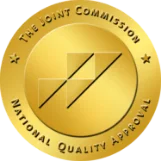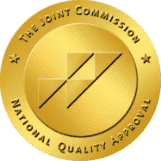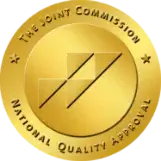National Alcohol Awareness Month was established in 1987 by the National Council on Alcoholism and Drug Dependence (NCADD). It is an annual opportunity to raise awareness about the risks of alcoholism and other health complications related to drinking too much alcohol.
This public health awareness program helps educate people and their communities about the dangers of excessive alcohol use.
In the United States and globally, alcohol consumption is an accepted part of daily life. From after-hours work functions to gatherings with family and friends, it’s rare to come across social events that don’t involve some level of drinking.
What’s often forgotten, however, are the many people who struggle with alcohol addiction or dependence.
The National Survey on Drug Use and Health (NSDUH) estimates that more than 14 million adults in the U.S. battle alcohol use disorder and that number is likely under reported.
The NSDUH Survey has been conducted every year since 1971 in the United States and is directed by the Substance Abuse and Mental Health Services Administration (SAMHSA), which is part of the Department of Health and Human Services (DHHS).
What are the Risks of Drinking Too Much Alcohol?
One of the biggest threats of chronic alcohol abuse is developing alcohol use disorder (commonly referred to as alcoholism), a physical and mental dependence to alcohol that requires treatment to overcome.
Very often a person struggling with this condition does not recognize that alcohol misuse is a problem, or they continue to deny this fact in the face of overwhelming evidence and consequences.
Many times the negative impact of alcohol addiction causes a person to lose their job, be arrested, or damages cherished relationships, as a result of their continued drinking.
Though not everyone who drinks alcohol will develop an addiction to alcohol, drinking as a regular lifestyle can also lead to some adverse health outcomes.
The health impact of excessive alcohol use can include some of the following:
- More than 88,000 people die every year from alcohol related causes, like driving while impaired, head injuries or issues of alcohol-fueled domestic violence
- The Centers for Disease Control and Prevention (CDC) reports that alcohol consumption is associated with certain kinds of cancer and the more a person consumes, the higher their risk
- An increased risk for depression and anxiety – alcohol is a depressant that can actually make symptoms of depression worse, creating a dangerous cycle of self-medicating with even more alcohol
Reducing the Stigma Associated with Alcohol Use Disorder During Alcohol Awareness Month
Perhaps the biggest goal of National Alcohol Awareness Month is to reduce the stigma associated with alcoholism and alcohol dependence. All too often, people are ashamed or feel embarrassed about needing to ask for help with their addiction or intense compulsion to drink.
Compassion, understanding and education are key components to removing the barriers to addiction treatment for people who need and want help.
It’s important to let people know that recovery and a return to normal life is possible. Unfortunately, most people do not get the help they need and deserve, so their condition goes untreated.
The most effective treatment for alcohol use disorder is focused on each individual’s unique needs, and seeks to uncover the underlying issues for why they drink in the first place.
There might be underlying mental health issues that need to be addressed through counseling or with medications, as well as developing skills like meditation, proper nutrition and exercise that enhance a person’s overall wellbeing and deepen their recovery.
During Alcohol Awareness Month in April, it’s essential for all of us to help spread awareness and education about alcohol misuse and abuse.
To get involved, use the hashtag #AlcoholAwarenessMonth online and in social media posts to increase attention to the importance of this initiative.
The earlier people understand the risks associated with too much drinking, the more time they have to make better, healthier choices that will be a positive force in every community.





















